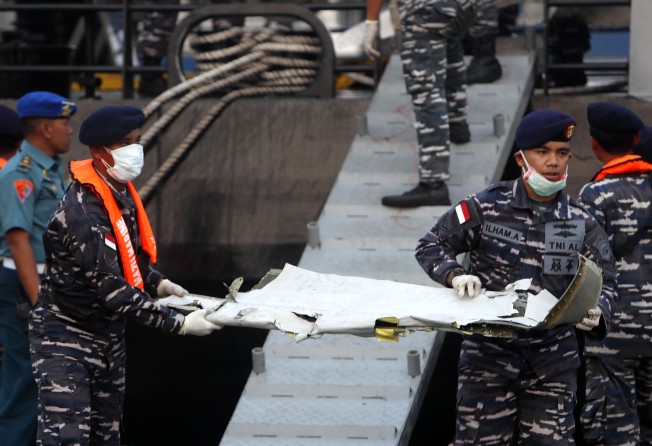Tragedies in Indonesia stress the need for high safety standards
- Plane crash that killed all 189 on board and ferry sinking in which only 18 survived underline the nation’s shocking transport record

Safe and reliable transport is a nation’s lifeline for economic development. Indonesia, which has signed up to China’s infrastructure development strategy, the “Belt and Road Initiative”, has long struggled to adequately deliver the essential element of growth. The crash last month of a passenger jet in which all 189 on board died was another reminder of deficiencies. Until officials are held accountable and safety regulations taken seriously, business and tourism will suffer.
Investigation of the accident involving a new Boeing 737 Max 8 of the budget carrier Lion Air is likely to take months. Concern about erroneous data from a sensor highlighted by the crash has prompted Boeing to alert pilots. Indonesia’s transport watchdog had already found from initial analysis of the flight recorder that the plane, which plunged into the Java Sea soon after take-off from Jakarta on a flight to Pangkal Pinang, had an air speed indicator problem on its fatal trip and three previous occasions. Company officials admitted the captain had wanted to turn back shortly before communications were lost. But the airline has a poor safety record, with at least 20 incidents since 2002 and the crash on October 29 was the second involving fatalities.
Indonesians are saddened by the accident, but it is not a shock; the nation has a terrible record for transport safety. The tragedy came just five months after the full lifting of a ban by the European Union and United States of Indonesian planes using their airspace. Poor safety standards led to the imposition of the embargo in 2007 and carriers were gradually allowed to return as they complied with rules. Most of the accidents involved low-cost carriers such as Lion Air and Air Asia and airlines that have since gone out of business.
Bus and boat accidents also occur regularly, the worst this year being the sinking of a ferry on Lake Toba in North Sumatra in June, with only 18 passengers surviving. The vessel had a capacity of about 40, but at least 193 people were packed on its decks and many more may have perished as there were few life jackets and no official manifest. Investigations after such tragedies often point to overcrowding, inclement weather and a lack of safety equipment and crew training. Lessons are rarely learned, as proved by accidents that occur time and again in hauntingly familiar circumstances.
The same is too often true for plane accidents; they are often traced to pilot error, mechanical faults and poor weather. Some crashes cannot be avoided, but too many occur regularly for them to be dismissed as being bad luck. Ever-improving technology means that passengers should never be unnecessarily exposed to risk. Officials need to ensure companies comply with high safety standards.